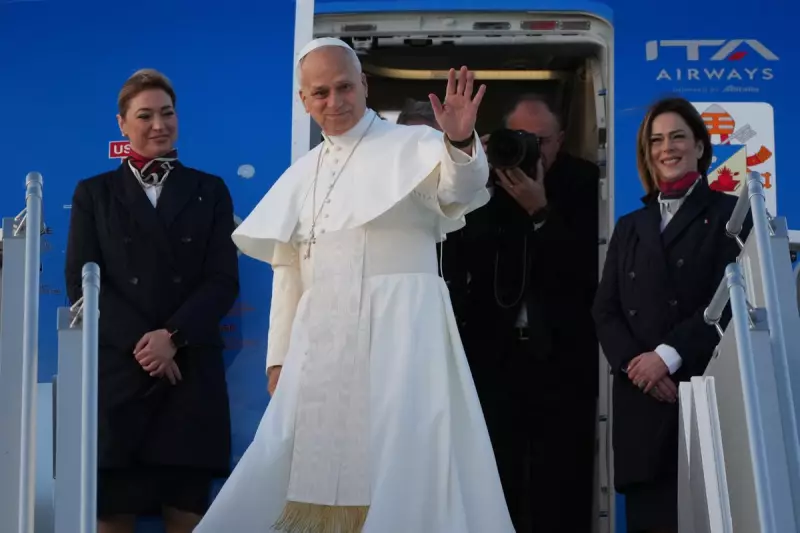
Pope Leo XIV has embarked on his first official foreign trip since becoming pontiff, setting off on a six-day journey to Turkey and Lebanon that fulfils a mission originally planned by the late Pope Francis.
The new pope departed from Rome's Fiumicino airport on Thursday 27 November 2025, with his initial destination being Ankara where he will meet with Turkish President Recep Tayyip Erdogan and address the diplomatic corps.
A Nation of Contrasts
Turkey presents a complex backdrop for the pontiff's visit, serving as a nation of over 85 million predominantly Sunni Muslims while simultaneously acting as a crucial intermediary in international peace negotiations. The country has hosted Russia-Ukraine talks and offered to join Gaza stabilisation forces, efforts that Pope Leo is expected to acknowledge during his diplomatic engagements.
Despite Turkey's growing military presence as NATO's second-largest army, many citizens remain focused on domestic economic struggles rather than international affairs. "I didn't know he was coming. He is welcome," said Istanbul resident Sukran Celebi, reflecting the muted public awareness of the visit outside Turkey's small Christian community.
Historic Anniversary Celebration
The central purpose of Pope Leo's Turkish itinerary involves marking the 1,700th anniversary of the Council of Nicaea, Christianity's first ecumenical council held in 325 AD. The pope will pray with Ecumenical Patriarch Bartholomew, spiritual leader of the world's Orthodox Christians, at the historic site in modern-day Iznik.
This symbolic gesture represents a significant step toward Christian unity, commemorating the period before the Great Schism of 1054 divided Eastern and Western churches. The two religious leaders will sign a joint declaration reinforcing their shared commitment to ecumenical cooperation.
Navigating Diplomatic Challenges
Pope Leo's visit includes several delicate moments that require careful diplomatic navigation. On Sunday, he will visit the Armenian Apostolic Cathedral in Istanbul, a location that has hosted nearly all visiting popes except Francis.
The visit carries particular sensitivity following Pope Francis's 2015 declaration describing the slaughter of Armenians by Ottoman Turks as "the first genocide of the 20th century," a statement that prompted Turkey to recall its ambassador to the Holy See. Pope Leo, known for his more prudent public statements than his predecessor, must balance historical acknowledgment with diplomatic pragmatism.
Religious freedom remains another complex issue, as the Catholic Church, with approximately 33,000 members in Turkey, lacks formal legal recognition in the country. While the Erdogan government has enacted reforms improving rights for religious minorities since 2002, Christian groups still face legal and bureaucratic challenges when attempting to register churches.
The pope's itinerary also includes important interfaith components, including a visit to Istanbul's Blue Mosque and presiding over an interfaith meeting. Asgın Tunca, an imam who will receive the pope, expressed hope that the visit would "help advance Christian-Muslim ties and dispel popular prejudices about Islam."
Following his Turkish engagements, Pope Leo will continue to Lebanon, completing the six-day foreign tour that represents his first significant international diplomatic mission as head of the Catholic Church.





